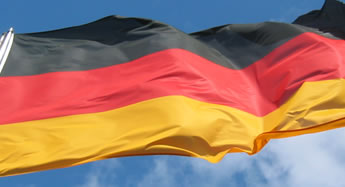Keywords from a German perspective
A recent German Case from December 20121 "MOST-Pralinen", (concerning key word advertising) shows the significant margin of appreciation that national Courts have to apply European Court of Justice (CJEU) case law.
In the "MOST-Pralinen" case, the defendant bid on the generic keyword "Pralinen" using Google's "broad match" function. This function then added the word "MOST", giving "MOST Pralinen", with the result that the defendant's advertisement displayed in response to searches for "MOST Pralinen".
 The German Federal Court of Justice (GFC) asked whether the reasonably well-informed and reasonably observant internet user is deemed to be aware, on the basis of general knowledge of the market, that there is no economic link between the advertiser and the brand owner, but that they are in competition.
The German Federal Court of Justice (GFC) asked whether the reasonably well-informed and reasonably observant internet user is deemed to be aware, on the basis of general knowledge of the market, that there is no economic link between the advertiser and the brand owner, but that they are in competition.
By asking this, the GFC has introduced a filter. Where the internet user would be aware that the claimant and the defendant were not connected but in competition, this knowledge may mean that the claimant's trade mark is not adversely affected by the defendant's activities.
The next step taken by the GFC was to ask, assuming the internet user was unaware of whether or not there was an economic link, whether the defendant competitor's advertising enabled that internet user to tell that the goods or services concerned did not originate from the claimant brand owner or from an economically linked company.
The GFC goes further than the CJEU ruling in Interflora and states that a trade mark is generally not affected when the advertising is clearly separated from the search results in a respectively characterised category, namely the paid-for adverts (e.g. a "sponsored links" box) and does not contain either the trade mark itself or any reference to the brand owner or the products offered under this trade mark.
 Hence, the GFC was, unlike the CJEU, considering the position and designation of the advertising. Furthermore, the GFC was of the opinion that the normal internet user would not expect that only offers exclusively made by the brand owner appear in the "sponsored links". Internet users are able to clearly distinguish between search results and paid-for adverts labelled.
Hence, the GFC was, unlike the CJEU, considering the position and designation of the advertising. Furthermore, the GFC was of the opinion that the normal internet user would not expect that only offers exclusively made by the brand owner appear in the "sponsored links". Internet users are able to clearly distinguish between search results and paid-for adverts labelled.
German case law also teaches that the use by a defendant of a domain name in an online advertisement expressly showing an origin other than the Claimant for the advertised products or services can be considered a relevant factor in the defendant's favour in a trade mark infringement action.
If you have any questions on this article please contact us.



